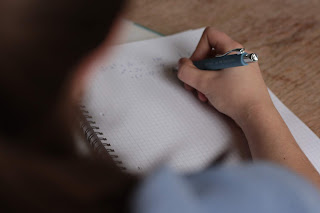You spend the long night to learn mathematical formula, but at the very next day. When you try to recall it, it just feel like vanish from your brain.
In maths, forgetting formula is normal, you can't learn all formula's by cramming. So you have to use right memorising techniques for learning maths formula's. The main reason why you can't memorise the formula are
In maths, forgetting formula is normal, you can't learn all formula's by cramming. So you have to use right memorising techniques for learning maths formula's. The main reason why you can't memorise the formula are
- Rare usage:- Those formula include which are rarely used in the chapter or book.
- Wrong memorising technique:- most of the time student use wrong memorising technique for learning the formula. So in exam we forgot those formula's.
The use of right memorising technique help to retain the formula for longer period. Below there are 5 techniques that helps you to memorise formula.
5 techniques to memorise formula's
1. Mnemonics
Mnemonic is any learning technique that aids information retention in the human memory. As knuckle mnemonic is used to remember the number of days in a month.
Example 1:- You must have learned the formula of sine cousin and tangent.
Some curly turn
People brown pink
Have hair blueu
This means
Where p=perpendicular
H=hypotenuseB=base
Example 2:-we can also make definition of logarithm easier
If we take the alphabet x,y,z this formula is hard to learn. But when we use the concept of answer,base,power, we can easily remember this. Through the use of mnemonics some formula's can be easily learned.
2. Pattern
In pattern you have to find relation between two different formula and try to relate each other.
Example:-
In this formula as we know the derivative of
3. Create a list of maths formula's
Make a list of all formulas whenever you newly learn it. List will be similar to dictionary. Make sure to write each and every formula in a list. If you forgot any formula, just revise from the list. The list is extremely beneficial at the time of exams. |
4. Repetitive usage
The formula which we repetitively use, we always remember that formula.You always remember this formula. This formula is Repetitively used by everyone.
5. Understand the formula
Whenever you learned a new formula, you try many question related to that. To properly understand the formula, you have to relate the formula to real world.
For example:- you know that speed is equal to distance upon time. When you visualise this formula with the help of a car you easily remember this formula.
















